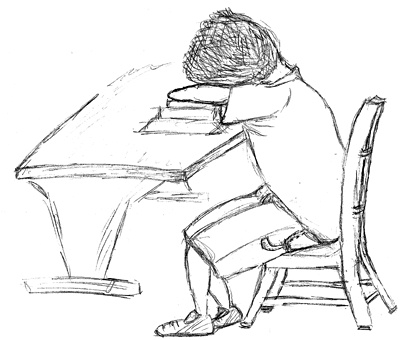All Nonfiction
- Bullying
- Books
- Academic
- Author Interviews
- Celebrity interviews
- College Articles
- College Essays
- Educator of the Year
- Heroes
- Interviews
- Memoir
- Personal Experience
- Sports
- Travel & Culture
All Opinions
- Bullying
- Current Events / Politics
- Discrimination
- Drugs / Alcohol / Smoking
- Entertainment / Celebrities
- Environment
- Love / Relationships
- Movies / Music / TV
- Pop Culture / Trends
- School / College
- Social Issues / Civics
- Spirituality / Religion
- Sports / Hobbies
All Hot Topics
- Bullying
- Community Service
- Environment
- Health
- Letters to the Editor
- Pride & Prejudice
- What Matters
- Back
Summer Guide
- Program Links
- Program Reviews
- Back
College Guide
- College Links
- College Reviews
- College Essays
- College Articles
- Back
High Schools Should Start Later
It seems to have become a common belief that a sufficient amount of sleep is a luxury a lot of people can’t afford. But Recently, the Center for Disease Control and Prevention (CDC) has been encouraging education policymakers to start middle and high school classes later so students will get a sufficient amount of sleep and be able to learn better in class.
Too many schools in the US start too early. In more than 40 states, at least 75 percent of public schools start earlier than 8:30 a.m., according to the CDC’s report.
Society pays too little attention to our “body clocks”. Adolescent’s internal clocks operate differently than those of other age groups so they find it harder to fall asleep earlier.
Kids need the recommended amount of sleep which is at least 8 to 9 hours. The CDC and the American Academy of Pediatrics cited significant risks that come with a lack of sleep. These include higher rates of obesity, depression, and higher rates of motor-vehicle accidents in teens as well as an overall lower quality of life. “Getting enough sleep is important for students’ health, safety, and academic performance.” said Anne Wheaton, lead author and epidemiologist in the CDC’s Division of Population Health, in a statement.
Students will also have a better attitude which will contribute to their willingness to learn and ability to take in information. The Minneapolis Star-Tribune reported that researchers from the University of Minnesota’s Center for Applied Research and Educational Improvement (CAREI) tested the question of whether start times affect performance in school. “Researchers analyzed data from more than 9,000 students at eight high schools in Minnesota, Colorado, and Wyoming and found that shifting the school day later in the morning resulted in a boost in attendance, test scores, and grades in math, English, science, and social studies. Schools also saw a decrease in tardiness, substance abuse, and symptoms of depression. Some even had a dramatic drop in teen car crashes.”
Many believe that starting school times later will interfere with after school activities but pushing back times or reserving times on the weekend is worth improving students academic performance.
Overall, students will perform better in and out of class if classes were to start later. Daily breaks and “late-start Mondays” just aren't enough.

Similar Articles
JOIN THE DISCUSSION
This article has 0 comments.
